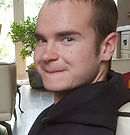
I recently came across this very interesting clinical psychology article on where depression lives and how to stop it growing. In this episode of The Psychology World Podcast, we’ll explore this great idea in more depth.
This episode has been sponsored by Abnormal Psychology: The Causes and Treatments of Depression, Anxiety and More Third Edition. Available on all major eBook retailers, you can order the paperback, large print and hardback copies from Amazon, your local bookstore and local library, if you request it.
The Headspace Where Depression Lives
Previously on this psychology podcast, we’ve spoken about how depression affects how we behave, feel and think. This is mainly explained in Abnormal Psychology and Beck’s Theory of Depression with the Cognitive Triad. Which to summary up means depression affects how we perceive information about the world, self and future around us.
In addition, I’ve spoken on the podcast before about the damaging impact depression and other mental health conditions can have on people. For example, depressed people not feeling like getting out of bed in the morning amongst other behaviours.
However, if we focus on the idea of headspace in depression. Then we can see that depression lives in between us (as in the self) and others. Also, Doctor Jeffery S. Nevid notes from his years of experience, there are three places or headspaces where depression lives. Meaning depression finds this headspace and takes root.
Personally, I think this is an interesting idea because if it’s true then this can help us to maintain our mental health so we can deny depression this headspace to grow. As well as we can infer from my books and the literature that mental health conditions are sort of like plants.
Since they grow and develop over time until someone has a diagnosable mental health condition.
3 Headspaces Where Depression Lives
Now, we’re going to look at the 3 headspaces where depression is thought to live.
Between Our Ears:
This is a great place to start because this is the more obvious headspace because this is what Cognitive Behavioural Therapy is based on. Due to depression changes our automatic thoughts to become more negative so this makes sense for depression to live there, in our minds.
Therefore, it’s the job of Cognitive Behavioural Therapy to help the client change their automatic thoughts to become more positive and behavioural activation.
Between Ourselves and Others
Despite this sounding weird at first, this is a critical headspace to bear in mind for depression and clinical psychology. Because depression can fill the gap between us and our family and friends since depression can make people feel like they don’t want to go out and socialise. Leading depressed people to make excuses and other behaviours to prevent them from seeing other people.
However, then this leads the depressed person to get into a difficult situation because the depression led to the person to start isolating themselves. Then this social isolation can lead to the person to feel even worse about themselves. Hence, this feeds the depression and leads to a vicious cycle of depression.
As a result, it’s important for depressed people to know, it’s okay to go out and not feel 100%. Even if you just sit in the corner or edge of the table with your friends that’s better than nothing. You’ll still be with other people and you can socialise, and starve off this social isolation.
Also, another tip is people love talking about themselves so even if the depressed person asks some simple questions to their friends. For example: what’s your favourite film, seen anything good lately? That’s going to be great for the friendship and the depressed person doesn’t have to do anything else.
Within Ourselves
I always tend to avoid modern philosophy, but I’ll admit there are times when it’s useful and it’s supported by psychology. In this case, both fields emphasise the importance of having meaning and purpose in your life because depression fills these holes in a person’s life.
Therefore, it’s important for people to have a job that gives them a sense of purpose, enjoyment and accomplishment. This can also apply to friends and family- having strong social bonds can help too.
Then the last example is perhaps purse a wider community goal than doing things for charity and help change lives for the better that way.
Overall, in this headspace, having a purpose and having a meaningful life can kill to fight off depression.
I really hope you enjoyed today’s episode.
If you want to learn more, please check out:
Abnormal Psychology: The Causes and Treatments of Depression, Anxiety and More Third Edition. Available on all major eBook retailers, you can order the paperback, large print and hardback copies from Amazon, your local bookstore and local library, if you request it.
Clinical Psychology Reference
I truly hope that you’re enjoyed this blog post and if you feel like supporting the blog on an ongoing basis and get lots of rewards, then please head to my Patreon page.
However, if want to show one-time support and appreciation, the place to do that is PayPal. If you do that, please include your email address in the notes section, so I can say thank you.
Which I am going to say right now. Thank you!
Click www.paypal.me/connorwhiteley1 to go to PayPal.

Comentários